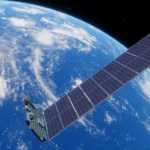
Chinese leader, the highest level guest of World War II celebrations in Moscow, is eager to maintain a “deep” relationship with Russia
China President Xi Jinping told Russian leader Vladimir Putin, that his country will remain alongside Moscow in the face of “hegemonic unilateralism and interventionism,” during a visit to Russia to commemorate the end of World War II. Xi arrived in Moscow last Thursday, at the beginning of a four-day trip. He highlighted the strengthening of confidence between the two countries, seeming to indirectly criticize Western criticism of Russia’s continuous offensive in Ukraine-a conflict that Putin has described as a fight against neo-Nazis.
“Faced with the international countercurrent of unilateralism and hegemonic behavior, China will work with Russia to assume the special responsibilities of the world’s great powers,” Xi told Putin.
Receiving Xi as a “dear friend” at Kremlin, Putin took the opportunity to reaffirm Russia’s role in World War II – a theme that he has long accused the West of trying to reduce the importance. The Russian President also reinforced his narrative that the war in Ukraine is a new battle against Nazism.
“Along with our Chinese friends, we are firmly committed to protecting historical truth, preserving the memory of war events and combating the modern manifestations of neo-nazism and militarism,” he said.
According to Putin, Russia and China now come together against “neo-Nazism.”
This week, the Ukraine Foreign Ministry asked countries not to send military forces to victory day events, arguing that this would go against the neutrality stated by some of them.
China presents itself as a neutral in the conflict, but Kiev states that Chinese citizens would have been sent to help Moscow in the Ukrainian territory.
“Correct vision”
Xi stated that China and Russia will jointly defend the “correct view” of the history of World War II, will protect the “authority and status” of the United Nations and defend the “rights and interests” of China, Russia and the “vast majority of developing countries”, with the aim of promoting “equal, ordained, multiplar and inclusive” economic globalization.
The visit occurs while US President Donald Trump presses Russia and Ukraine to close a peace agreement after more than three years of war. Washington began a discreet diplomatic rapprochement with Moscow – something that may be leaving Beijing restless.
“Many say China has some concerns about the current rapprochement between Russia and the US, something quite visible in recent days. And this can mean a geopolitical change that will affect China,” said Yulia Shapovalova, Al Jazeera in Moscow.
XI, whose country is involved in a commercial war with the US, is expected to sign several agreements to deepen the strategic partnership “without boundaries” established with Russia in 2022, just under three weeks before the Russian invasion of Ukraine.
Shapvalova pointed out that the Chinese delegation should discuss the Power of Siberia 2 pipeline, a “long postponed” project due to cost disagreements.
“Economic pressure on both sides can bring them closer to an agreement this time,” said Shapvalova.
With information from Al Jazeera and News Agencies*
Source: https://www.ocafezinho.com/2025/05/10/china-e-russia-unem-forcas-contra-a-intimidacao-hegemonica/

